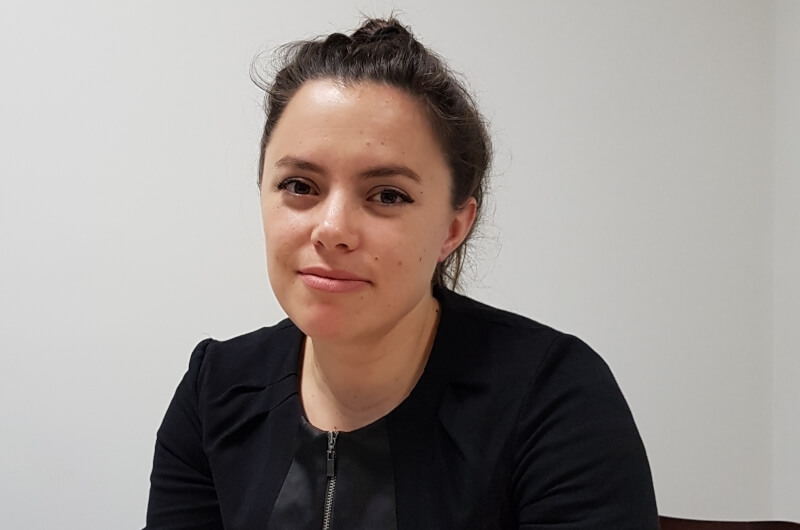Anthony Tripolino FIPA: Lessons from teenage side hustles
Having proven his entrepreneurial flair as a teenager, Anthony Tripolino FIPA was taught lessons around work ethic by...
READ MORE
The decision of the Federal Court in Sunraysia Harvesting Contractors Pty Ltd (Trustee) v Commissioner of Taxation [2017] FCA 694 (‘Sunraysia’) offers an important lesson for advisers who might be considering some creative structuring options in order to claim tax benefits.

Sunraysia was an appeal from a taxation objection decision of the Administrative Appeals Tribunal (‘AAT’) to the Federal Court. The court held that the AAT correctly applied the case law regarding ‘sham’ arrangements, and the appeal was dismissed.
Background
For a number of years Mr Erdogan operated a business of supplying casual labour to meet the seasonal demands of orchardists and vignerons. Until June 2011 he did this via a company which he controlled, Alper Harvesting Contractors Pty Ltd (‘Alper’).
Alper contracted with growers to provide the casual labour required by growers and engaged employees to perform the work required by the growers. Alper was paid by growers and paid wages to the employees. It was required to account to the ATO for PAYG deductions and to the revenue authorities of the states for payroll tax.
However, in June 2011 the structure and method of operation changed. A new company Sunraysia Harvesting Contractors Pty Ltd (‘Sunraysia’), was incorporated. Sunraysia acted as the trustee of a discretionary trust of which Mr Erdogan and his spouse were beneficiaries. Sunraysia continued the role that Alper had in contracting with growers but no longer engaged employees.
Instead, it purported to contract successively with three other companies: Danood Pty Ltd (‘Danood’), Jameron Pty Ltd (‘Jameron’) and Kigra Pty Ltd (‘Kigra’), for those companies to engage and pay employees, and to account for PAYG deductions and for payroll tax if necessary.
Danood was incorporated in June 2011 and was wound up in September 2012. Jameron was incorporated in September 2012 and wound up in July 2013. Kigra was incorporated in July 2013 and deregistered in July 2014.
The registered office of Sunraysia, Danood, Jameron and Kigra was the address of an entity, anonymised here to ‘SME Advisers’. It advertised itself as giving advice to small-to-medium enterprises on corporate and personal insolvency, asset protection and tax minimisation. Ms T was a ‘consultant’ with SME Advisers.
Documents tendered to the AAT in the original decision included a document described as a ‘Services Agreement’ which purported to be between Sunraysia and Danood for the provision by Danood to Sunraysia of ‘Services’. The document was otherwise blank, save for instructions on completing various items in the schedule to the agreement. Near identical Service Agreements also existed between Sunraysia and Jameron and Sunraysia and Kigra.
The document was signed for Sunraysia by Mr Erdogan and by someone described as ‘Danny Woods’ for Danood (noting that the name ‘Danood’ is a contraction of ‘Danny’ and ‘Woods’). Mr Danny Woods gave evidence that the signature of the Services Agreement was not his and he knew nothing of Sunraysia.
Based on Mr Woods’ evidence, the AAT found that he signed documents at the request of Ms T to assist her to set up other companies. That is, Mr Woods was essentially engaged by Ms T as a ‘signatures on demand’ provider.
Other documents tendered included hundreds of ‘invoices’ from Sunraysia to Danood, Jameron and Kigra. The invoices were handwritten in a pre-printed and numbered invoice book, the type able to be purchased at newsagents and stationers.
It seems that one of the aims of this structure was for Sunraysia to claim, among other things, input tax credits on supplies purportedly made to Sunraysia by Danood, Jameron and Kigra and deductions in relation to payments made to the contracting companies.
The AAT found that ‘the circumstances overwhelmingly point to the conclusion that Danood, Jameron and Kigra were part of a façade created by Ms T to permit Sunraysia to avoid remitting PAYG deductions.
The straw man and the phoenix
Rather unsurprisingly, it turned out that all of the alleged subcontracting companies were effectively controlled by Mr Erdogan and his spouse.
In the AAT decision, the AAT was not satisfied that payments by Sunraysia to Danood, Jameron and Kigra were made in accordance with a contract between those entities for the ‘subcontracting company’ to provide labour to meet Sunraysia’s obligations to growers.
The AAT found that each of the contractor companies had been controlled by Mr Erdogan and his spouse, and found that the purported contracts between Sunraysia and the contractor companies were never intended to create any legally enforceable obligations.
Mr Erdogan’s case was not helped by the fact that he was unable to produce any alleged employees of the purported subcontractors as witnesses, with the exception of one Mr Recep Aktepe who’s ‘affidavit was noteworthy for its brevity’ and his assertion that he had received group or PAYG certificates was ‘given in response to leading questions and through an interpreter’.
Instead, the arrangements were found to be shams, and this finding was upheld by the Federal Court.
The Federal Court summarised the arrangement as follows: ‘in design, the structure put to Mr Erdogan by SME Advisers looks to be but a crude, interposed company of no worth, run by a straw man (a feature reminiscent of the ‘bottom of the harbour’ behaviours of a generation ago) with ‘phoenix’ successors’.
Mr Erdogan ‘failed to show that he ever intended the key legal elements of the structure to take effect’. The tax implications for Mr Erdogan were that the commissioner’s original determination was upheld.
The commissioner had:
The meaning of ‘sham’
The term sham is often bandied about casually but in the context of tax affairs it has a very specific meaning which we should pay attention to, given the negative tax implications that can arise where an arrangement is found to be a sham.
Philippa Briglia, lawyer, DBA Lawyers